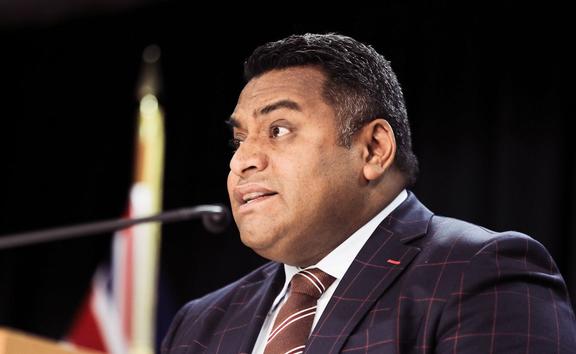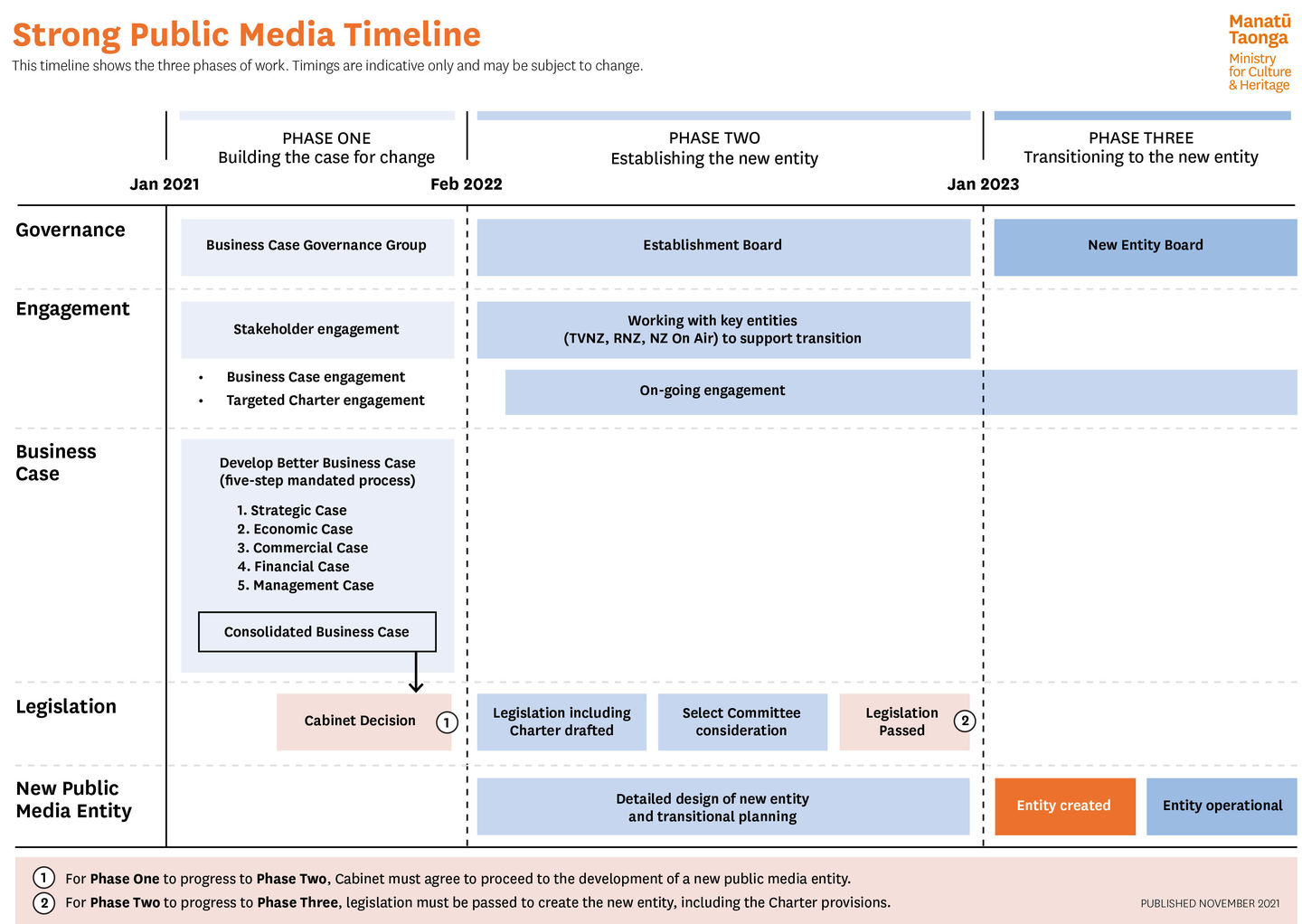RNZ and TVNZ will be subsidiaries of a new mega public media organisation, Broadcasting Minister Kris Faafoi has confirmed.
Faafoi announced the long-awaited changes to public broadcasting today, outlining the government’s plans for RNZ and TVNZ and the creation of a new public media entity.
Faafoi, a former journalist, said the government was aiming to have the new organisation up and running by the middle of next year.
- READ MORE: RNZ, TVNZ’s future: Mega public media entity likely to be unveiled
- Other NZ public media reports
He said the government had accepted the recommendations of the business case working group, and agreed to establish the organisation as a new Autonomous Crown Entity.
It will operate under a charter, with “trustworthy news” as a core service. It will be funded by a mix of government funds and commercial revenue, with complete editorial independence. Advertising-free programming will be maintained.
An establishment board will be set up in the next month, with the aim of having the new entity operational by 1 July next year.
Decisions about how the new organisation would work in practice would be left for the board to make.
This could include whether to keep TVNZ and RNZ as subsidiaries, and while current programmes would be maintained there would also be the opportunity for new ones.
This could include the likes of advertising-free television, but again those decisions would be left for the board to make.
Watch the announcement
“Whether it be covid, national emergencies or Olympic Games, the last few years have shown how important a strong media environment is to reflect New Zealanders’ stories, dreams and aspirations and it is important we support public media to flourish,” Faafoi said.
“RNZ and TVNZ are each trying to adjust to the challenges, but our current public media system, and the legislation it’s based on, is focused on radio and television.
“New Zealanders are among some of the most adaptive audiences when it comes to accessing content in different ways; like their phones rather than television and radio, and from internet-based platforms.

“We must be sure our public media can adapt to those audience changes, as well as other challenges that media will face in the future.
“The new public media entity will be built on the best of both RNZ and TVNZ, which will initially become subsidiaries of the new organisation.
“It will continue to provide what existing audiences value, such as RNZ Concert, as well as better reaching those groups who aren’t currently well served; such as our various ethnic communities and cultures.”

He said funding decisions would be made as part of Budget processes, and the new organisation would have a focus on providing quality content to under-served or under-represented audiences.
Deliver on Te Tiriti obligations
It would be required to deliver on the Crown’s Te Tiriti obligations, and could collaborate with and support the wider media sector where appropriate.
Faafoi said the public would have a chance to give their views, including on the new charter, through the select committee process later in 2022.
Faafoi, who is unwell but has tested negative for covid-19, made the announcement from his home today.
Labour first announced intentions to boost public broadcasting through “RNZ Plus” at the 2017 election, but since then the proposal has gone through several iterations.
A working group was commissioned to look into a new public media entity in March last year.
Faafoi said he announced in-principle decisions in February 2020 to ensure public media could face the challenges of the future, to keep up with audience, technology and market trends.
“The world is a vastly different place compared to that time. There are new challenges, but still fundamentally the challenges that face audiences and media are the same and if anything they have intensified.”
He said when the government began looking at this issue, TV and radio were ranked one and two for the biggest daily audience in New Zealand, and now are ranked two and four, with video on demand like YouTube at number one, and subscription video on demand like Netflix at number three.
Process put on ice
The process was put on ice when the covid pandemic hit, but last year the government followed through and asked experts to develop a business case. They delivered their recommendations late last year, to create a modern public media entity.
They also stressed the importance of protecting and future-proofing the trust and strength that public media has built up over decades.
He said the case for change is there, so Cabinet had decided to create the new public media entity, but has committed that all current non-commercial programming and platforms will endure and the likes of RNZ National and Concert FM will continue.
“The establishment of the new entity will allow better use of a range of platforms including current radio and linear TV, and those of third parties, to reach audiences when, where and how audiences choose, and will operate under a public charter set out in legislation.”
He said there will be some areas where it will make sense to collaborate with others, but “there will also be areas where it will continue a long-standing tradition of excellence and fierce competition”.
The establishment board will have members from both RNZ and TVNZ, and Faafoi said he intended to ensure there will be “some representation of people on the shop floor. Someone who understands the media and the issues that are important to staff as we work through this transition”.
Budget announcements will come on Budget Day, he said, but some of the decisions are best left to the establishment board, “which is why that board will be up and running soon”.
A stronger foundation
He said this change will cause some unease, but the future under a new entity with the ability to respond to the challenges and opportunities of local media will give a stronger foundation “to do what public media has done for decades, and that is to tell our stories”.
He disagreed with criticisms that the move would lead to dominance of the media sector by a publicly funded behemoth.
RNZ and TVNZ had a long history of editorial independence and Faafoi said he was pleased that would continue, with protections maintained in legislation.
He said the very heart of the proposal was to ensure the content the public media had provided over decades could continue to be delivered in whatever form audiences would consume it from in future.
“Audiences need to know that the government is moving with it.”
This article is republished under a community partnership agreement with RNZ.
This content originally appeared on Asia Pacific Report and was authored by APR editor.
This post was originally published on Radio Free.